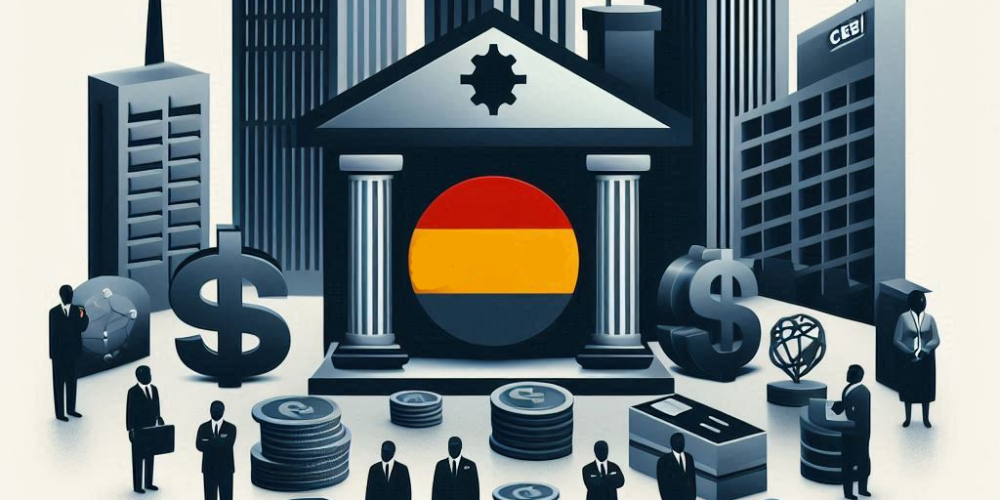Dr. Mahamudu Bawumia’s vision for Ghana’s finance sector is geared toward enhancing financial inclusion, strengthening fiscal management, and fostering a resilient, diversified economy. He aims to establish specialized institutions like the Minerals Development Bank to support Ghanaian-owned mining ventures and small-scale miners, as well as an SME Bank to facilitate small business financing. By supporting banks and microfinance partnerships, Dr. Bawumia seeks to empower smallholder farmers and agribusinesses, fostering growth in essential sectors of the economy. Recognizing the need for a stable fiscal environment, he proposes strengthening public debt management, implementing tighter expenditure controls, and promoting a flat-rate tax system to simplify tax administration. He also envisions raising the insured deposit amount to protect depositors and drive financial security.
Digital financial services are key to his vision, with plans to expand the e-Cedi and introduce the Ghana Universal Digital Wallet, fostering a cashless economy. The Ghana Deposit Protection Corporation will play an essential role in safeguarding deposits, while digital wallets will promote secure transactions. Financial inclusion extends further with plans to improve mobile money interoperability and expand student loans to reach all postsecondary students. Dr. Bawumia also envisions greater economic resilience through initiatives like the Gold-for-Oil Program, which aims to stabilize fuel prices and relieve foreign exchange pressures.
Dr. Bawumia’s vision includes advancing Ghana’s economic diplomacy. By establishing bilateral investment treaties and securing private capital for infrastructure projects, he seeks to position Ghana as a competitive investment destination. His approach to fiscal sustainability extends to new policies in downstream fuel supply and incentives for financial institutions to support investments in environmentally friendly industries, such as electric vehicle infrastructure. Dr. Bawumia’s finance sector vision is comprehensive, focusing on inclusivity, economic stability, and fiscal responsibility to foster sustainable growth and drive Ghana toward economic resilience and prosperity.
Frequently Asked Questions
Question 1: What steps will be taken to protect depositors in Ghana’s financial system under Bawumia’s administration?
Answer: Under the new policy, the Ghana Deposit Protection Corporation will raise the insured deposit amount. This will provide greater protection for depositors in the event of bank failures, increasing trust in the financial system and encouraging more savings. Financial institutions will benefit from increased public confidence, potentially attracting more deposits and customers.
Question 2: How will the introduction of the SME Bank support small businesses and how does this impact the financial sector?
Answer: The SME Bank will address the financing challenges faced by small businesses by offering tailored financial products and services. This will help to bridge the funding gap for SMEs, which often struggle to secure traditional loans from banks. For financial institutions, this presents an opportunity to expand their loan portfolios to small businesses with the SME Bank providing risk mitigation and support for lending activities.
Question 3: How does the promotion of Mobile Money Interoperability contribute to financial inclusion?
Answer: Mobile Money Interoperability allows seamless transactions across different mobile money platforms, making digital financial services accessible to a larger portion of the population, especially in rural areas. This will deepen financial inclusion, bringing more people into the formal financial system. Financial institutions and banks can capitalize on this by offering digital banking products and partnerships with mobile money operators.
Question 4: How will Bawumia’s policy strengthen public debt management and what role will financial institutions play?
Answer: The policy emphasizes strengthening public debt management to ensure sustainable debt growth. By bringing clarity to the fiscal regime in the extractive sector and ensuring certainty in revenue collection, financial institutions will benefit from a more stable macroeconomic environment. Banks will have opportunities to engage in government debt markets with lower risks and better forecasting of returns on government securities.
Question 5: How will the policy on enhancing pension sustainability and using pensions as collateral for mortgages benefit financial institutions?
Answer: By allowing workers to use their pensions as collateral for mortgages, this policy will unlock new opportunities for home financing. Banks and financial institutions will benefit by being able to offer more mortgage products to a wider customer base, as the risk associated with lending is mitigated by the pension-backed guarantees.
Question 6: How does Bawumia plan to achieve and sustain an average of 6% growth in Ghana’s economy?
Answer: The policy aims to achieve and sustain 6% growth by focusing on expanding key sectors like agriculture, mining, and strategic industrial initiatives. This includes targeted investments in agro-processing, fisheries, and initiatives like the One District, One Factory (1D1F) program. By modernizing agriculture and stimulating industrial growth, the policy seeks to drive job creation and increase productivity.
Question 7: What are the implications of introducing a flat tax system similar to Estonia’s?
Answer: A flat tax system simplifies the tax regime by applying a single tax rate to all taxpayers, regardless of income level. This approach could reduce compliance costs, improve tax collection efficiency, and encourage businesses to formalize, making it easier for them to understand their tax obligations and thus stimulating economic growth.
Question 8: How will amending the Fiscal Responsibility Act benefit the economy?
Answer: Amending the Fiscal Responsibility Act to limit expenditure to 105% of the previous year’s tax revenue aims to enforce fiscal discipline. It ensures that government spending is closely tied to its revenue base, preventing unsustainable deficits and enhancing the country’s economy.
Question 9: How will the Bank of Ghana’s Gold Purchase Programme stabilize the exchange rate?
Answer: The Gold Purchase Programme will allow the Bank of Ghana to use gold to support the national currency and manage foreign exchange reserves. By stabilizing the exchange rate, this program will provide businesses with greater predictability, which is crucial for long-term planning, especially in import-dependent sectors.
Question 10: How will tax and VAT regime reforms stimulate business growth?
Answer: Reforming the tax and VAT system could involve simplifying tax structures, reducing VAT rates, or offering targeted exemptions for businesses in key sectors like manufacturing and export. These reforms aim to reduce the tax burden on businesses, making them more competitive and allowing for reinvestment in growth.


